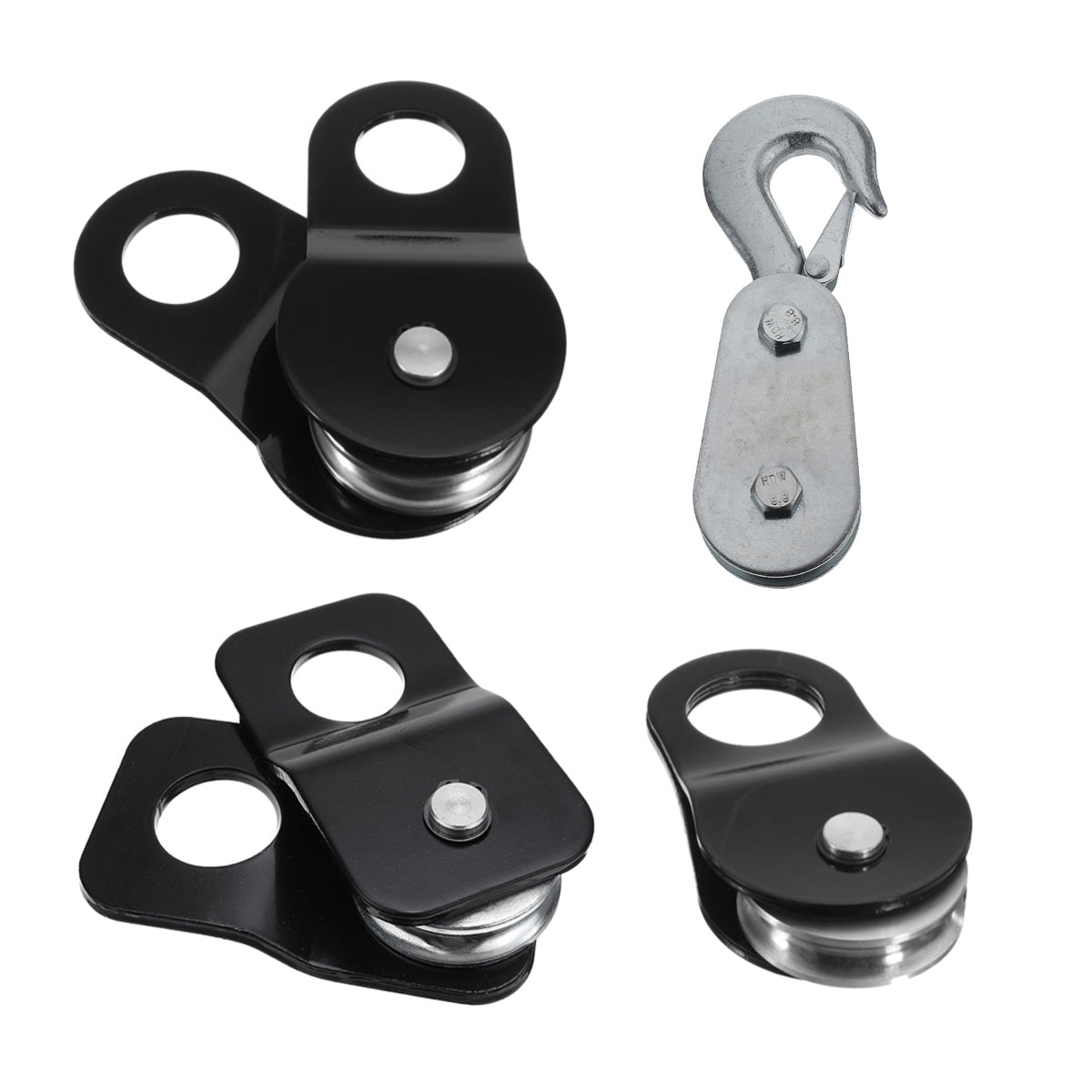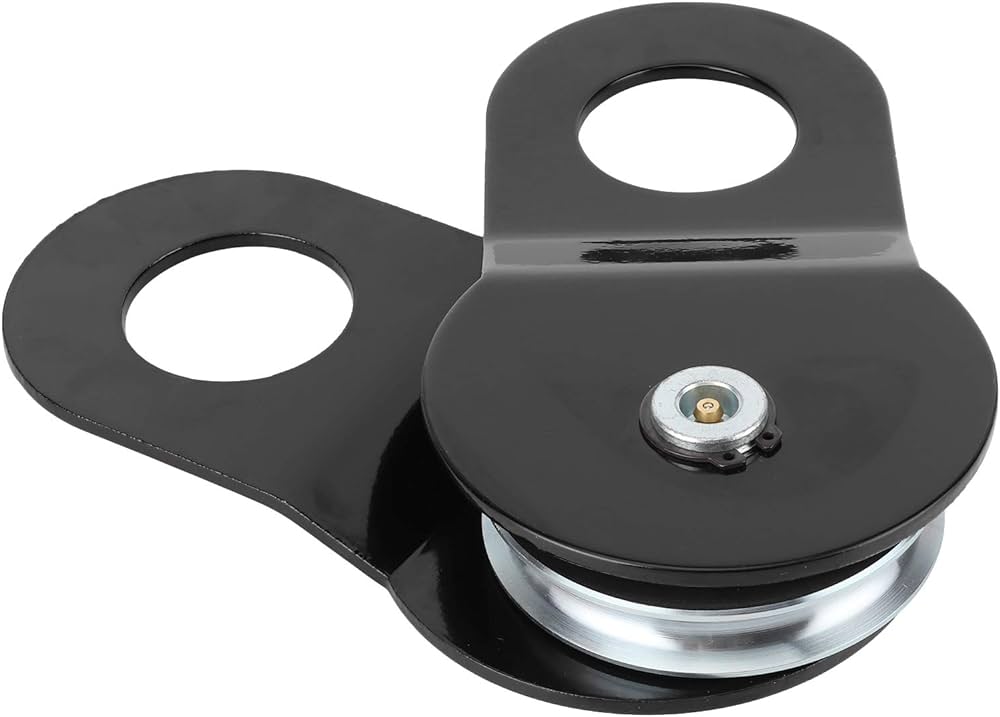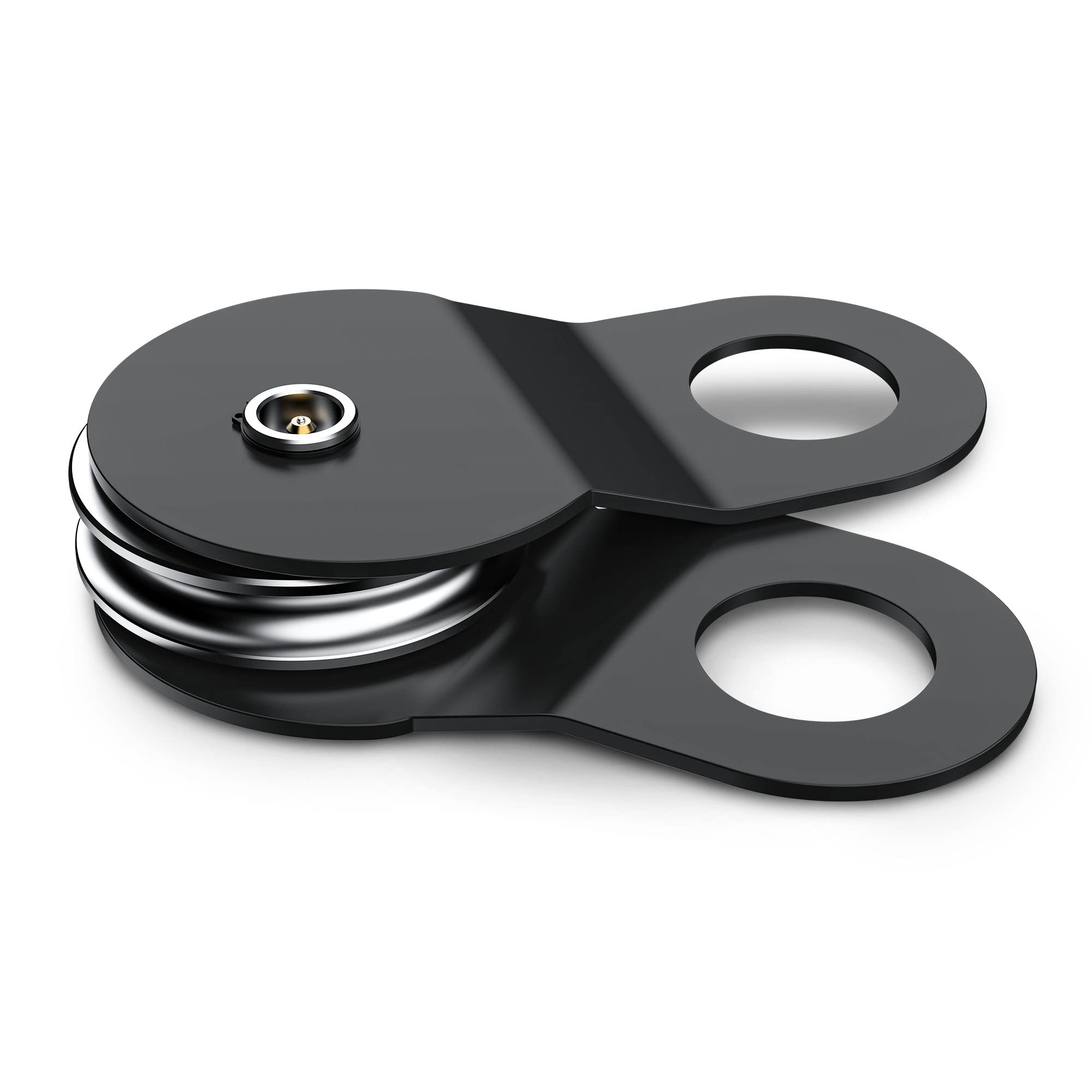Product Description
Product Description
Sheave features:
| Material | Q235B, Q345B, 35#, 45#, 60#, SSW-QR1, S45C |
| Groove surface quench | HRC45-55 |
| Groove surface quench depth | 2mm-2.5mm |
| groove MT after heat treatment and welding line UT and MT | |
| Max processing diameter | 2, 000mm |
| Short production cycle | |
| It is used for crane equipment, port equipment, oil drilling rig and so on | |
Product Parameters
| Code | Wire rope diameter(mm) | Main dimension(mm) | |||||
| Groove diameter | Outside diameter | R | Groove Width | Shaft diameter | Bearing hole width | ||
| BX1251 | 10-14 | 355 | 400 | 7 | 37 | 55 | 64 |
| BX2251 | >14-19 | 450 | 510 | 10 | 50 | 80 | 74 |
| BX3251 | >19-23.5 | 560 | 631 | 12 | 60 | 95 | 90 |
| BX4251 | >23.5-30 | 710 | 800 | 15 | 73 | 130 | 106 |
| BX5251 | >23.5-30 | 900 | 1012 | 19 | 92 | 160 | 128 |
| BX6251 | >30-37 | 1000 | 1126 | 22 | 104 | 160 | 128 |
| BX7251 | >43-50 | 1250 | 1402 | 26 | 123 | 190 | 148 |
| BX8251 | >50-58 | 1400 | 1572 | 29 | 135 | 190 | 148 |
Production Profile
About Us
About Us
As a company of industries and trading integration with ISO 9001-2008 Certificate, HangZhou CHINAMFG Metallurgy Equipment Manufacturing Co., Ltd. Has been in manufacturing material handling equipment parts for many years, with professional experience.
Our Service:
If you are interested in any of our products, please contact me freely! Warmly Welcomed your visit to our factory in China, OEM service will be ok.
Application
Customer Visiting
Certifications
Packaging & Shipping
Services:
Best Services For You
1) We can provide OEM service and design for you
2) We can pack the goods according to your requirement
3) We test the quality of all products before delivery
4) We guarantee our reply in 24 hours of working day
5) We can communicate with you in different languages
6) High quality, best price, punctual shipment, good after-sale service will be guaranteed.
FAQ:
Q: What information should I provide if I want to order the products?
1) Product information: Quantity, specification
2) Delivery time required.
3) Shipping information: Company name, address, phone number, destination seaport/air port.
4) Forwarder's contact details if there is any in China.
Q: How about your payment terms?
A: 30% -50%deposit, with the balance before delivery, we accept T/T and L/C at sight.
Q: Can I use our own logo?
A: Yes, we can produce by using your own logo if you need.
Q: How about sample & MOQ policy?
A: Welcome sample order. MOQ can be 1 set.
Q: What is your lead time for your goods?
A: Normally 30 days after confirmed order,
| Type: | Construction Winch |
|---|---|
| Driven Type: | Screw |
| Speed: | Slow |
| Carrying Capacity: | Weight Level |
| Tonnage: | 30T |
| Reel Number: | 1 |
| Customization: |
Available
| Customized Request |
|---|

What maintenance procedures are required to keep winch pulleys in good condition?
To keep winch pulleys in good condition and ensure their optimal performance, several maintenance procedures should be followed. Here is a detailed explanation:
Regular maintenance is essential for the longevity, reliability, and safe operation of winch pulleys. By performing the following maintenance procedures, you can keep winch pulleys in good condition:
- Cleaning: Regularly clean the winch pulleys to remove dirt, debris, and other contaminants that can accumulate over time. Use a soft brush or cloth to gently scrub the pulleys and remove any buildup. Pay special attention to the grooves, sheaves, and bearing areas. Avoid using harsh chemicals that can damage the pulleys or compromise their integrity.
- Inspection: Conduct thorough inspections of the winch pulleys to identify any signs of wear, damage, or defects. Look for cracks, corrosion, bent or broken parts, or excessive wear on the sheaves or bearings. Check the cables, ropes, or straps for fraying, kinks, or signs of weakening. If any issues are detected, repair or replace the affected components promptly.
- Lubrication: Apply appropriate lubrication to the winch pulleys to ensure smooth and efficient operation. Use lubricants recommended by the manufacturer, such as silicone-based or synthetic lubricants. Apply the lubricant to the bearing surfaces, sheaves, and other moving parts as per the manufacturer's guidelines. Avoid over-lubrication, as it can attract dirt and debris.
- Bearing Maintenance: Winch pulleys often have bearings that require maintenance. Check the manufacturer's recommendations for bearing maintenance intervals and procedures. Clean and inspect the bearings regularly, and replace them if signs of wear or damage are present. Ensure that the bearings are properly lubricated to reduce friction and maintain their performance.
- Alignment: Check the alignment of the winch pulleys to ensure they are properly aligned with the cables, ropes, or straps. Misalignment can cause premature wear, increased friction, and reduced efficiency. Adjust the pulleys as necessary to ensure proper alignment and smooth operation.
- Load Testing: Periodically perform load testing to verify the load capacity and performance of the winch pulleys. Follow the manufacturer's guidelines for load testing procedures and use appropriate equipment to apply controlled loads. Load testing helps identify any potential issues with the pulleys and ensures they can safely handle the intended loads.
- Storage: If winch pulleys are not in use for an extended period, store them in a clean and dry environment. Protect them from moisture, extreme temperatures, and corrosive substances. Consider using protective covers or storage containers to prevent dust accumulation and potential damage during storage.
- Manufacturer's Recommendations: Always refer to the manufacturer's recommendations and guidelines for specific maintenance procedures and intervals. Different winch pulleys may have unique maintenance requirements or specific considerations. Adhering to the manufacturer's instructions ensures that the maintenance procedures are appropriate for the particular winch pulleys being used.
By following these maintenance procedures, you can keep winch pulleys in optimal condition, prolong their lifespan, and ensure safe and reliable operation. Regular maintenance not only enhances the performance of winch pulleys but also helps prevent potential failures or accidents during lifting and pulling operations.

What role do winch pulleys play in off-road vehicles and recovery operations?
Winch pulleys play a crucial role in off-road vehicles and recovery operations. Here is a detailed explanation:
In off-road vehicles and recovery operations, winch pulleys serve multiple vital functions that contribute to safe and effective vehicle recovery and extraction. Here are the key roles that winch pulleys play in these scenarios:
- Increased Pulling Power: Winch pulleys provide a mechanical advantage that allows off-road vehicles to exert greater pulling power. By rerouting the winch cable through the pulley system, the applied force can be multiplied, enabling the vehicle to overcome obstacles or extract itself from challenging situations. This increased pulling power is particularly valuable in off-road environments where vehicles may get stuck in mud, sand, or uneven terrain.
- Change of Direction: Winch pulleys allow for changes in the direction of the pulling force. In recovery operations, this is crucial for maneuvering the vehicle out of difficult positions. By using winch pulleys strategically, the pulling force can be redirected to achieve optimal angles for extracting the vehicle. This flexibility in changing the direction of the force enhances the recovery process and helps overcome obstacles that may obstruct a direct extraction.
- Load Sharing: Winch pulleys enable load sharing between multiple anchor points. In off-road recovery situations, there may be limited or unstable anchor points available. By using winch pulleys to distribute the load across multiple anchor points, the force can be evenly distributed, reducing strain on any single point and minimizing the risk of anchor failure. This load sharing capability enhances safety and increases the likelihood of successful vehicle recovery.
- Winching from Different Angles: Winch pulleys facilitate winching from different angles. In off-road recovery scenarios, the ideal angle for winching may not always be directly aligned with the anchor point. Winch pulleys allow for the winch cable to be redirected, enabling winching from various angles and improving the efficiency of the recovery operation. This versatility is essential when dealing with complex recovery situations or when maneuvering the vehicle around obstacles.
- Controlled Load Movement: Winch pulleys offer precise control over the movement of the load during recovery operations. By utilizing the pulley system, operators can regulate the tension and speed of the winch cable, ensuring controlled and gradual movement of the vehicle. This control minimizes the risk of sudden jolts or jerks that could damage the vehicle or compromise the safety of the recovery operation.
- Increased Safety: Winch pulleys enhance safety in off-road vehicles and recovery operations. By providing increased pulling power, changing the direction of the force, and facilitating load sharing, winch pulleys help prevent excessive strain on the winch system, the vehicle, and the recovery equipment. This reduces the risk of equipment failure, accidents, and injuries during the recovery process. Additionally, winch pulleys allow operators to maintain a safe distance from the vehicle during recovery, minimizing the risk of injury from sudden movements or equipment failure.
The roles played by winch pulleys in off-road vehicles and recovery operations, including increased pulling power, change of direction, load sharing, winching from different angles, controlled load movement, and increased safety, make them indispensable tools for off-road enthusiasts and recovery professionals. Winch pulleys significantly enhance the capabilities and effectiveness of winch systems, helping to safely extract stuck or immobilized vehicles and navigate challenging off-road environments.

How does a winch pulley contribute to the operation of winches?
A winch pulley plays a crucial role in the operation of winches by providing mechanical advantage and versatility. Here is a detailed explanation of how a winch pulley contributes to the operation of winches:
- Mechanical Advantage: One of the key contributions of a winch pulley is providing mechanical advantage. By redirecting the winch cable or rope through the grooved sheave of the pulley block, the pulley effectively multiplies the pulling force exerted by the winch. This mechanical advantage allows winches to exert greater force, making it easier to move or lift heavy loads. The pulley block distributes the load over multiple lines, reducing the strain on the winch and increasing the overall pulling capacity. This is particularly useful in situations where the load is exceptionally heavy or when additional pulling power is required.
- Directional Control: Another important contribution of a winch pulley is its ability to change the direction of the pulling force. By attaching the pulley block to an anchor or a fixed point and routing the cable or rope through the sheave, the winch can pull the load from a different angle. This versatility allows for more efficient and controlled winching operations, especially in situations where a direct line of pull is not possible or when the load needs to be guided around obstacles. The winch pulley enables winches to adapt to various scenarios and provides flexibility in achieving the desired pulling direction.
- Load Distribution: Winch pulleys also contribute to load distribution during winching operations. By distributing the load over multiple lines, the pulley block helps to evenly distribute the weight and forces involved. This can prevent excessive stress and strain on the winch and other components, promoting more balanced and controlled lifting or pulling of the load. Load distribution is particularly important when dealing with heavy or unevenly distributed loads, as it helps maintain stability and reduces the risk of overload or equipment failure.
- Increased Reach: In certain winching scenarios, a winch pulley can extend the effective reach of the winch. By using the pulley block to change the direction of the pulling force, the winch can effectively reach locations that are not directly accessible. This can be advantageous when performing winching operations in confined spaces, over obstacles, or in situations where a straight-line pull is not feasible. The winch pulley expands the operational range of the winch, enhancing its versatility and enabling it to tackle a wider range of tasks.
- Safety and Control: Winch pulleys contribute to the overall safety and control of winching operations. By providing mechanical advantage and load distribution, they help prevent excessive strain on the winch and other components, reducing the risk of equipment failure or damage. The ability to change the direction of the pulling force also enhances control and maneuverability, allowing operators to guide the load more precisely and avoid potential hazards. The use of winch pulleys promotes safer and more controlled winching operations, minimizing the risk of accidents or injuries.
In summary, a winch pulley contributes to the operation of winches by providing mechanical advantage, directional control, load distribution, increased reach, and improved safety and control. It multiplies the pulling force, offers versatility in pulling directions, evenly distributes the load, extends the reach of the winch, and enhances overall safety and control during winching operations. Winch pulleys are essential components that enhance the capabilities and effectiveness of winches in various applications, from off-road recovery to industrial lifting and pulling tasks.


editor by CX
2023-09-21